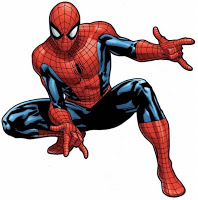What the story? And whose story is it?
 Last wee I told you that the first step in creating a short story is to write down the story. And yes, I know that sounds silly but let me expand a bit.
Last wee I told you that the first step in creating a short story is to write down the story. And yes, I know that sounds silly but let me expand a bit.A true short story has characters, plot, setting and theme. What I’m talking about now is the story as you’d tell it to me if we were having lunch together and I hadn’t seen that news story and you just wanted to bring me up to speed. We all tell stories like this all the time. I suggest that you start by writing that out, your basic story idea. Don’t overthink it! Don’t do research. Don’t make an outline. Write it out in one sitting.
The next step is to find your protagonist. It’s easy to assume you know the role of the protagonist. We’ve all read enough stories that we know a protagonist when we see one. But for your own story, don’t assume you already know. Step back and look at your story idea from all angles. Whose story do you want this to be. Last week I used the example of the recent flood that devastated Ellicott City. If that were a fictional story you might have already decided this is the story of the lost National Guardsman who died trying to rescue someone. But remember, the protagonist doesn’t have to be the hero. We can all agree on the protagonist in Macbeth, and he certainly is not a hero. It doesn’t even have to be the point of view character. Consider every Sherlock Holmes story.
The protagonist is simply the person who makes choices that drive your story forward. If the character doesn’t choose his or her own fate and get the reward or suffer the consequences of those choices, then that’s not the protagonist. It’s all about a character who wants something and is willing to go through conflict to get it. If the character doesn’t want something badly enough to choose to go thru the conflict your reader will be disappointed no matter how the story comes out.
More importantly, the protagonist is the person whose fate matters the most to the story. This character’s fate determines whether our story is a tragedy or not. In this case it could be the person our hero dies saving. Or his partner who arrived too late to make the rescue attempt. Or the mayor who chose not to evacuate the city. You decide whose story it really is.
Next week we'll talk about how you can make that protagonist interesting to your readers.
Published on July 08, 2018 12:03
No comments have been added yet.



